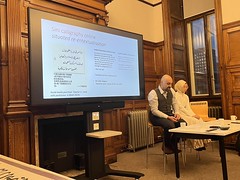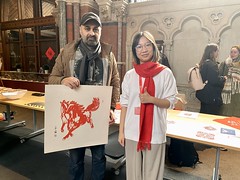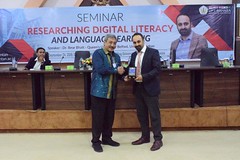The following is an overview of my session for the ‘Doctoral Colloquium on Learning Innovations 1’ at the University of Nicosia (Cyprus) on 22 Oct 2013. The Presentation is below:
The Prezi can also be found on: http://prezi.com/gi73acm6l3s1/?utm_campaign=share&utm_medium=copy&rc=ex0share
This presentation outlined a series of reflections on my doctoral process so far. I discussed issues broadly related to the following topics:
The development and conceptualisation of my doctoral project
How I developed on my masters thesis, and began the process of ‘puzzlement’. From this puzzlement emerged my research questions, which were further honed as I engaged with the literature in the fields of educational technologies, literacy studies, and STS (studies of Science, Technology and Society).
Selecting supervisor/s
For me the selection of supervisors has revolved around my chosen topic, the theoretical perspective(s), and vicinity to my home in West Yorkshire (UK). Whilst my foci have morphed slightly over time, they remain generally within the purview of my two supervisors, with some room for me to explore. I also knew my supervisors from teaching-related research activities they had carried out, so was able to approach them directly in person rather than emailing the department’s admin office and following the formal process at the outset.
Challenges faced – and still am facing – in the process, including:
How the writing process was initiated and is being maintained. Aside from the usual thesis project, and tangential publications, I have enjoyed moving ‘beyond A4’: blogging, tweeting, etc. I reflected on how I have tried to maintain a disciplined writing regime, and how I wrote a paper collaboratively using Google Drive.
Overcoming the upgrade/transfer. This represented, among other things, a cogent proposal of my doctorate, its potential implications, and the context of my study. It helped me to conceptualise my study: the what, why, how, and so what of it. It was also accompanied by a pilot study.
Doing a pilot study. Conducting a pilot study enabled me to give my research methodology a trial run under realistic conditions, helping me to find out how the field and participants would react to the whole process. I was also able to reflect on ethical considerations, difficulties with access for research and selection of appropriate software for both data collection and management. This was thoroughly documented in my upgrade document and published in a paper.
Networking. Personal Learning Networks (PLNs) are described as consisting of “people and resources that guide your learning, point you to learning opportunities, answer your questions, and give you the benefit of their own knowledge and experience” (Nielsen 2008). These kinds of spaces lead to creative works, innovation, and good ideas. The notion of a PLN is useful way to maintain a ‘continual networked conversation’ with other doctoral students, academics, and intellectuals globally.
I also discussed my research and its focus and emerging findings. It was nice to present in Nicosia again, and thanks to the University of Nicosia for inviting me (under the aegis of CARDET)
Categories: Digital Literacies, Lectures, PhD Reflections










